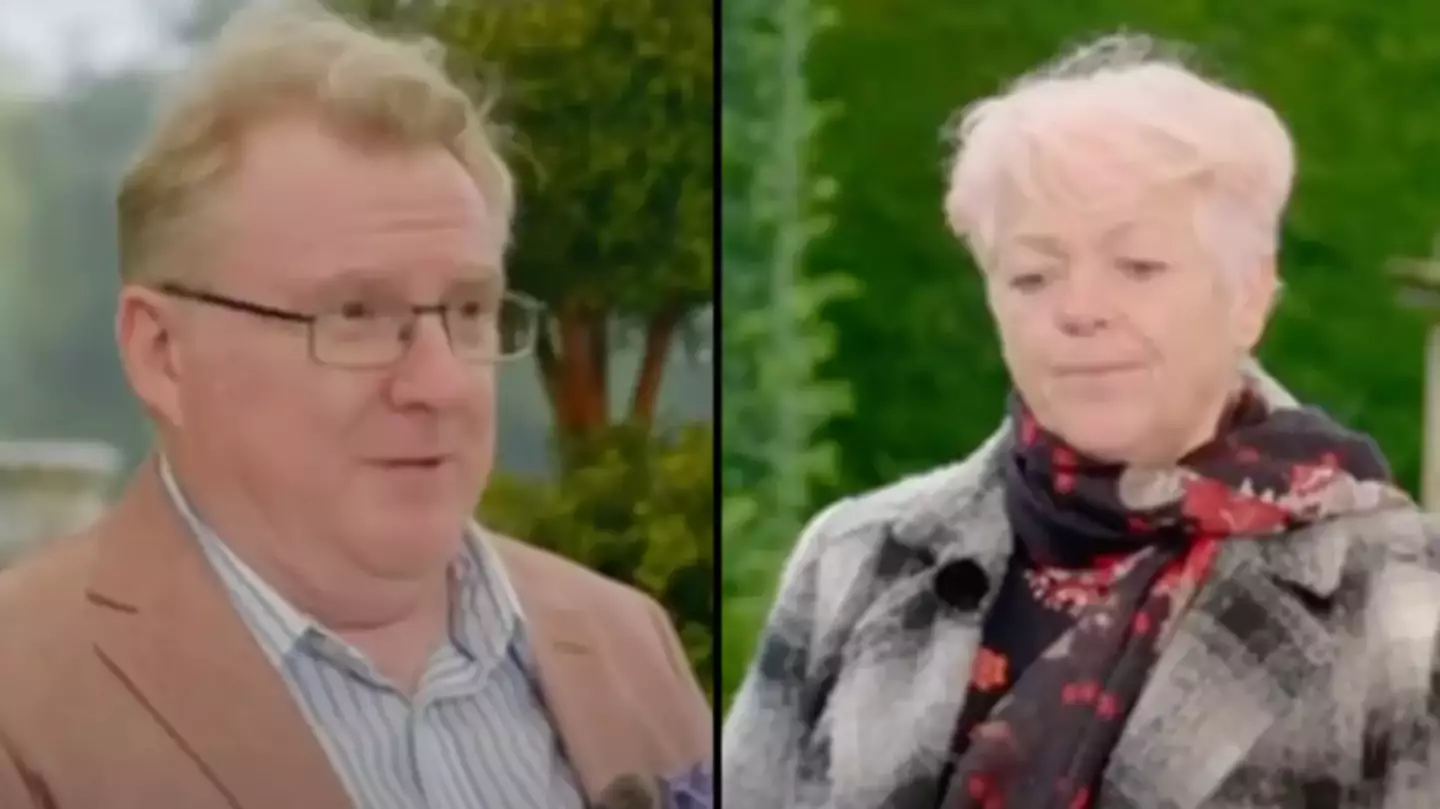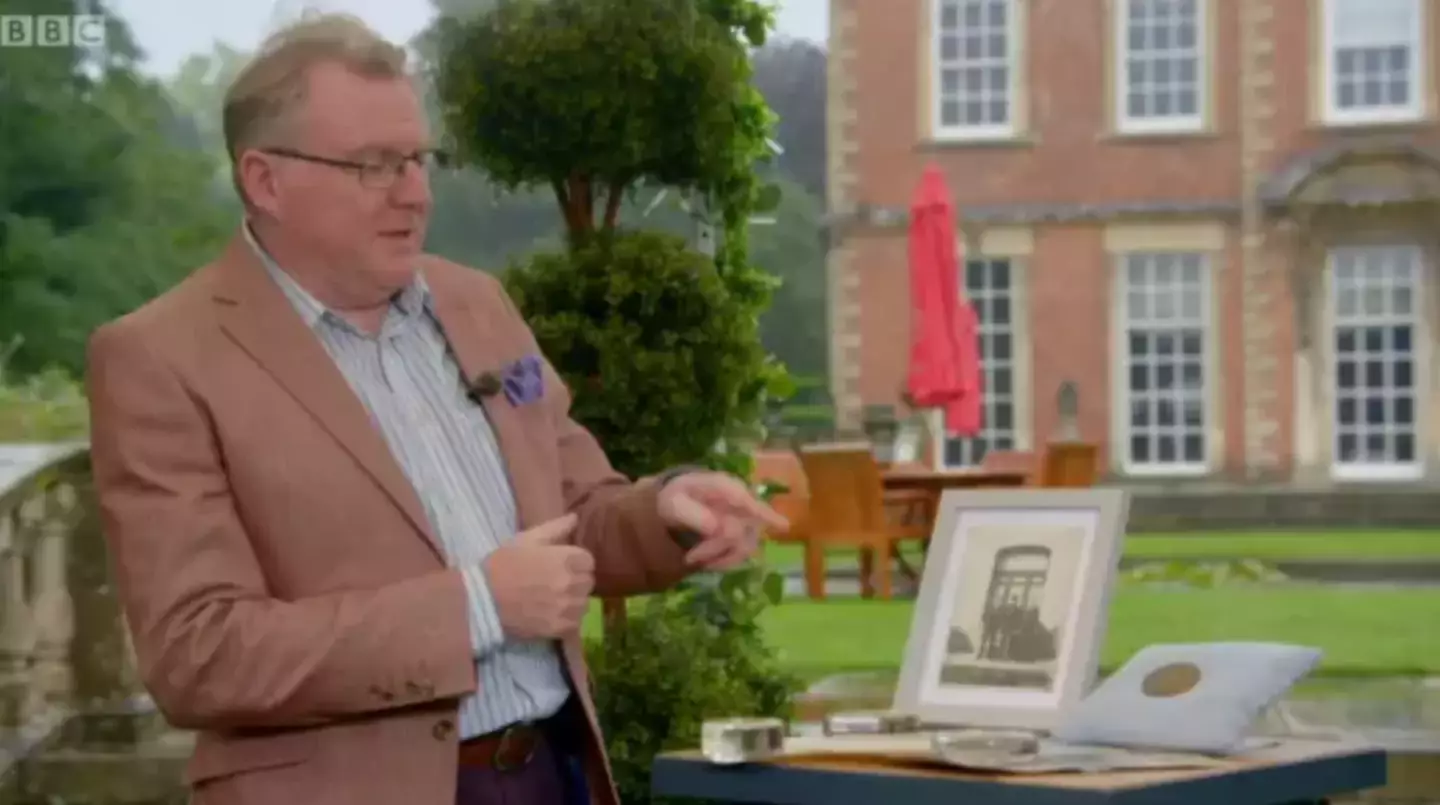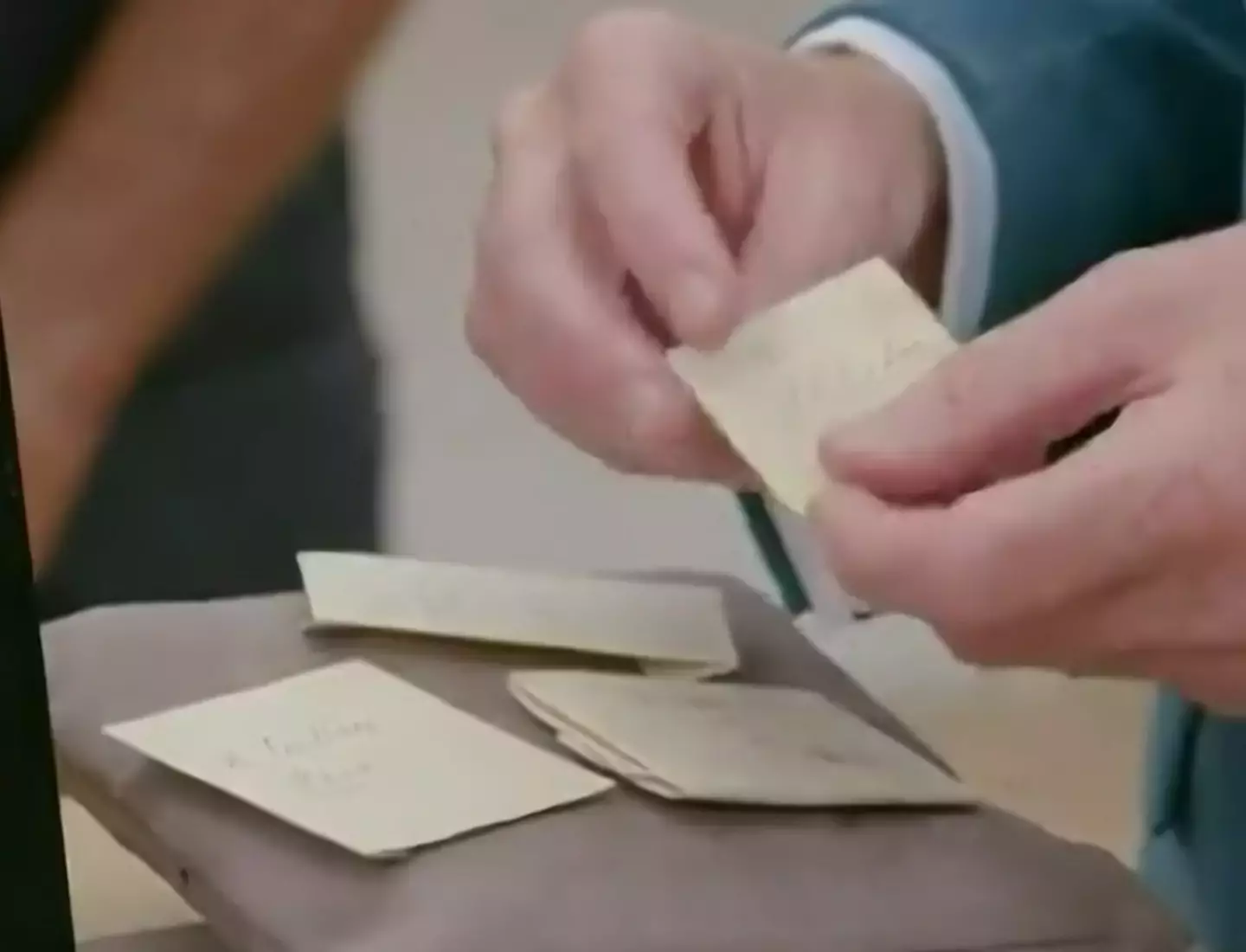
An Antiques Roadshow host once refused to value an item due to its dark history.
Military medals specialist Mark Smith appeared on an episode of the BBC show, which was visiting Newby Hall, Yorkshire in 2021.
During the programme, Smith explained why refused to provide a valuation to this one woman and her daughter.
Advert
Watch below:
The military museum curator began by asking the woman and her daughter for any information about the medallion, to which she replied: “Unfortunately my mum passed away in February this year.
“And while we were sorting out her things we came across the medal that belonged to my grandad Tommy, which was her father.
Advert
“So it’s all been a bit of a mystery because we couldn’t find out why he actually got the medal.”

Smith then explained to the mother and daughter that the medal was created in 1955 and that he wouldn’t have been ‘awarded it’ but was instead given it as a ‘present’.
He continued: “It’s something that he does on a yearly basis, as far as I can work out, where he is taking back old soldiers.
“And the group in Belgium that he has affiliated himself with are a very rare group of people, because they are concentration camp survivors.”
Advert
Speaking about what the concentration camp would have been like, Smith went on to say: “It had two gas chambers, it had firing post to execute people, it had gallows to hang people and it had torture chambers and it’s still there.
“Now your medallion is the 10th-anniversary medal for the liberation of concentration camps and they were given to people, Belgians, who had been in concentration camps."

As the medallion was given to concentration camp survivors, Smith said he wasn’t able to give a valuation.
Pointing to a photograph that the woman brought in with her, he went on: “This is the man who gave him the medal and it’s actually signed that he was in the underground forces, part of the resistance movement and he was also in a concentration camp.
Advert
“Now we always give you a valuation on the Antiques Roadshow.
“But we don’t give valuations to Holocaust things because there is no price you can put on what someone went through to be awarded that medal.
“So I can’t tell you what it’s worth but now you know what it is, I hope you think it was worthwhile coming to the Antiques Roadshow.”
The strangest items that have appeared on Antiques Roadshow
Though Tommy's medal has a heartbreaking history, many items that appear on Antiques Roadshow are just plain bizarre.
Human hair from famous poets

Advert
Ever dreamed of owning the locks of William Wordsworth and Samuel Taylor Coleridge?
Well, it'll cost you, as when this item was brought on Antiques Roadshow last year it was valued at upwards of £40,000.
The clippings were a family heirloom, and according to expert Justin Croft, one was taken on a person's deathbed.
Yikes.
Nightmare fuel Teletubbies concept art
Turns out Tinky-Winky, Dipsy, Laa-Laa and Po originally looked pretty scary.
Jonathan Hills drew the concept art for the future children's TV icons. He sadly died in 2020 and his wife brought some of his original sketches on the show in 2022.
Expert Mark Hill admitted some of the drawings were 'creepy', but went on to value the individual pieces between £500 and £2,000, and the entire collection of 80 drawings at up to £80,000.
A bottle of pee
Who could forget the time expert Andy McConnell inadvertently drank urine back in 2016?
A bloke called John found the bottle in his garden, and McConnell used the taste test to figure out what was inside, thinking it was port.
Fast forward to 2019, and Fiona Bruce revealed to McConnell: "Inside were these brass pins, all of these dating from the late 1840s, and the liquid - urine, a tiny bit of alcohol and one human hair."
It turned out it was a 'witches bottle', buried on the threshold of a house as a protection against curses and bad luck.
Topics: Antiques Roadshow, BBC, TV